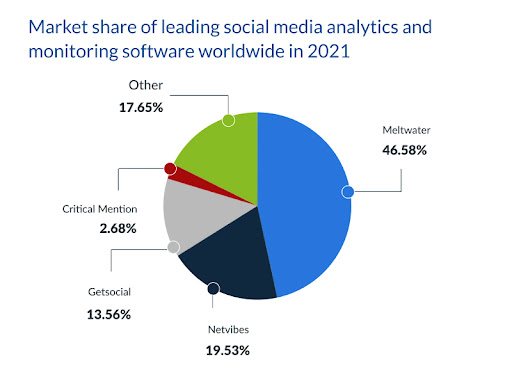
Artificial intelligence (AI) has been touted as the next big thing in eCommerce, and in many ways, that’s true. AI in eCommerce has the power to transform supply chain management, customer retention and upselling, marketing campaigns, and even eCommerce website development and design.
Today’s buyers have become more demanding than ever and demand personalized service above all else. To give them what they want, retailers need an AI-powered system to provide customers with product recommendations based on their specific needs and desires.
The following infographic from Statista offers insights into AI in eCommerce.

Source: Statista – AI in eCommerce
Overall, AI in eCommerce revolves around the following use cases:
- Personalized Recommendations
- Quick-Price Optimization
- Voice Search
- Sentiment Analysis
- Large-Scale Inventory Management
Let’s Explore them in Detail:
Effective Personalized Recommendations
In the past, eCommerce recommendations were based on superficial things like a customer’s purchase history. But now, with artificial intelligence, enterprises can do so much more. They can consider a customer’s full web browsing and purchase history and demographic information to give them genuinely personalized recommendations.
And it’s not just about what they’ve bought in the past—we can also use AI to predict what consumers might want to buy in the future. Personalized recommendations work on the principle that most people enjoy receiving products tailored specifically for their tastes. For example, Netflix suggests TV shows or movies you might enjoy watching based on your previous viewing habits.
Amazon suggests items you may want to buy next if you’ve made similar purchases in the past (such as buying nail polish remover after buying nail polish). As retailers focus less on volume sales and customer satisfaction, personalization becomes increasingly essential for driving conversions and improving conversion rates.
Artificial intelligence enables retailers to gain insights from their customers’ behaviors across all channels, including store visits, online shopping carts abandoned at checkout, and phone calls- making up nearly half of their time interacting with an enterprise!
Quick Price Optimization

Source: Statista – eCommerce Companies Adopting Dynamic Pricing
One of the most rapid applications of AI in eCommerce is Quick-Price Optimization (QPO). QPO uses machine learning algorithms to optimize pricing in real-time based on customer demand. By automatically adjusting prices, QPO can help online retailers increase sales and profits. In addition, QPO can also help reduce the risk of human error in pricing.
It proves highly beneficial during festive sales when you want to change your price quickly. For example, if you’re going to start a sale but don’t know what discount percentage you should use for different products or brands, the software will calculate what’s best for each product or brand.
In cases where items/products are out of stock or not selling well at their current price point, QPO recommends a lower price point that leads to increased sales due to reduced competition from other sellers who may be selling similar products at a higher price point. eCommerce development companies can customize QPO to integrate with third-party apps such as Salesforce CRM, NetSuite ERP, and Google Analytics, so it has visibility into every aspect of an eCommerce company’s operation.
Voice-Search Assistants
Voice search assistants are making it easier for shoppers to find what they’re looking for. Worldwide successful eCommerce giant Amazon introduced Alexa and posted that eCommerce has reached the era of voice-first shopping. Nearly one-third of all searches on Amazon this past holiday season were from voice searches.
Alexa gave voice to 34% of all product searches during the holiday season, said the company’s CEO, Jeff Bezos, at an event earlier this year. That was up from 20% last year. Google Assistant is another example of AI that consumers use on their smartphones. The other digital assistant on Apple devices called Siri also helps consumers shop online with natural language processing technology and cloud computing algorithms, according to Forbes.
What makes voice search appealing to the users are the hands-free capabilities. Consumers don’t have to type or swipe through screens which makes things much easier when someone is doing something else like cooking dinner or driving. Shoppers also like the convenience of ordering items through voice commands while running errands or completing household chores stated MarketWatch.
Notably, the Microsoft CEO, Satya Nadella says “ Your brand needs to have its own agents that can talk directly to customers and to converse across multiple digital assistants”. With the rising number of voice searches worldwide. They have become indispensable aspects of AI leading eCommerce searches. As per Oberlo, around 40 percent of Americans prefer voice searches over regular text searches. Their reports say that there are approximately 135.6 million US citizens using voice search features for an intuitive user experience.
Sentiment Analysis

Source: Statista – Social Media Analytics
Artificial intelligence is transforming the field of eCommerce. One way it is doing this is through sentiment analysis. Sentiment analysis is understanding how a customer feels about a product or service by analyzing social media, online reviews, and other feedback forms. By understanding how customers think, businesses can change their products or services to meet customer needs better. It helps to create a better customer experience and can lead to more sales.
Although sentiment analysis is yet to gain popularity, it is already being viewed as transformative for eCommerce. For example, with sentiment analysis, enterprises can improve their chatbots to answer questions better and solve customer problems. They can also offer personalized content based on what they know about the customer’s preferences using data collected from previous purchases or conversations.
Similarly, businesses might use AI to help them decide what ads they should show a particular person at a specific time to increase conversions. There are endless possibilities for artificial intelligence in eCommerce!
Large-Scale Inventory Management
In the past, eCommerce inventory management was a tedious and time-consuming task that required a lot of manual input. This is no longer the case with artificial intelligence (AI). AI can now handle all aspects of inventory management, from product categorization to restocking shelves. It not only saves businesses time & money but also allows them to focus on other areas of their business.
With advanced inventory management solutions leveraging AI, eCommerce companies have increased sales by as much as 15%. It also lets retailers know when an item will need to be replenished. Thanks to these advances, companies don’t have to worry about running out of stock for their bestsellers or missing out on potential new products because they didn’t anticipate their demand.
Wrapping Up
Overall, AI in eCommerce has become an integral part of business operations, from marketing to optimizing supply chains. For example, AI can help predict consumer demand and optimize stock levels accordingly. As a result, businesses can avoid overstocking or running out of popular items.
It also supports marketing with consumer data and behavior analysis. Retailers can use AI to target specific consumer groups with highly relevant ads, messaging, and offers. It increases response rates and ensures they are getting their message across to a receptive audience genuinely interested in hearing it.
At a more detailed level, AI can help analyze content such as blogs or social media posts for engagement and determine what elements worked best so businesses can replicate them. So, when hiring eCommerce developers, it’s crucial to analyze their AI skills, including developing neural networks or artificial neural networks.
Also, Read – https://www.articleritz.com/why-is-the-opencart-back-in-stock-extension-a-must-for-your-ecommerce-business/




